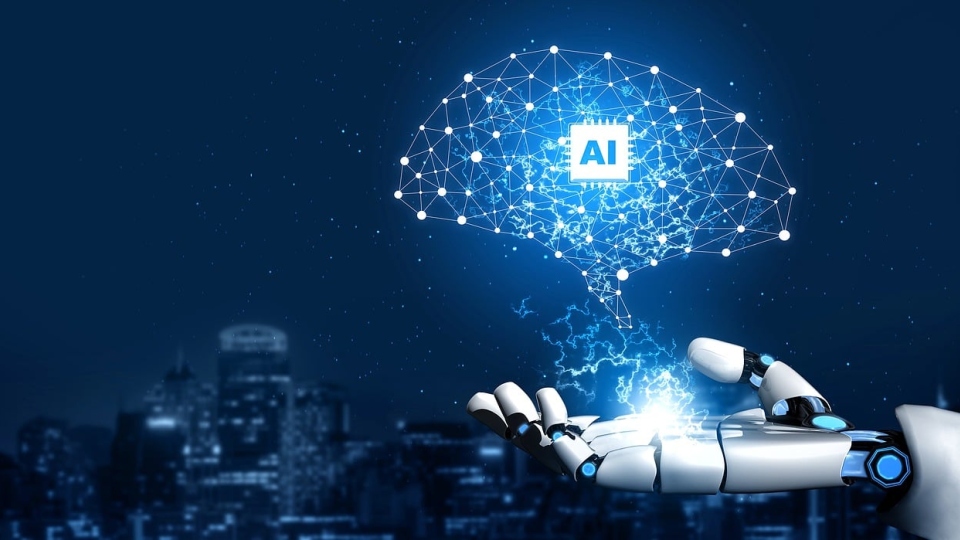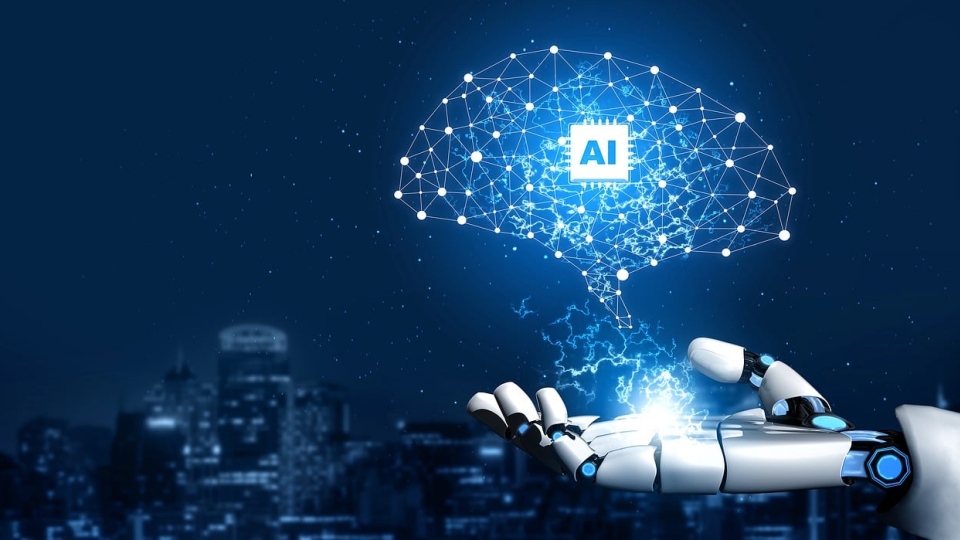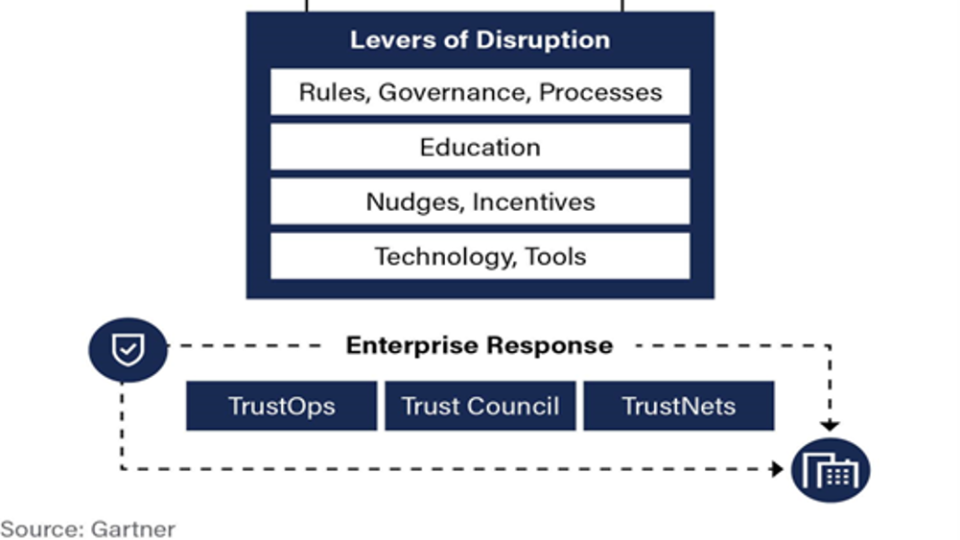
There is always an abundance of AI technology announcements, here are some interesting ones that can aid the channel.
In timely fashion, after the 14-hour AWS outage last week, Datadog has launched Updog.ai, a free public-facing web page that delivers independent, real-time, status monitoring for more than thirty popular SaaS providers and thirteen AWS services, including Amazon S3, AWS Lambda and Amazon DynamoDB.
Updog.ai is powered by anonymised, aggregated observability data and AI models. It provides software developers and engineers with a single dashboard for monitoring the near real-time health of widely used platforms like OpenAI, GitHub, Slack, ServiceNow and Zendesk, besides the cluster of AWS services.
It’s freely accessible so that anyone - not just Datadog customers - can check on the live status of the cloud-based software, tools and services that most organisations are dependent on today.
Updog.ai turns anonymised and aggregated APM telemetry data from thousands of organisations into real-time status updates, highlighting performance issues or outages the moment they surface. It helps engineers to quickly isolate and diagnose problems without having to wait for updates from vendor-maintained status pages or third-party aggregators.
Updog.ai also leverages Datadog’s ability to track signals and correlate incidents across a global user base to confirm whether errors are systemic. This allows engineers to quickly verify if a problem is local or more widespread.
-Teradata has announced details about its new AI Services, addressing a critical enterprise challenge: transforming AI pilots into production-ready agentic solutions that deliver significant business value.
The integrated offering combines embedded experts with proven methodology and Teradata’s knowledge platform to guide organisations in developing and scaling AI agents across their business.
Field-proven consultants help companies maximise their current AI and data investments, while enabling real-time, context-aware agent decisioning leveraging Teradata’s recently released suite of AI tools.
Applicable across industries and at any AI maturity level, Teradata AI Services deliver agentic use cases with flexible engagement models, all backed by Teradata's foundation of trusted data, security, and governance.
The sprint-based delivery model combines expert-led methodology with Teradata’s suite of AI tools to iteratively deploy agentic systems that learn and adapt within specific business contexts. This approach transforms fragmented data into a unified knowledge platform while delivering sustained performance, scale, and reuse across operations, finance, and customer experience, we are told.
-Fivetran says Hippocratic AI, a specialist in generative AI healthcare agents, is using Fivetran to create a secure and reliable data foundation as it scales its platform. The move enables Hippocratic AI to protect sensitive production systems, accelerate analysis, and build trusted infrastructure in one of the most regulated industries in the world.
“With Fivetran, we’ve added data resilience to systems while establishing a foundation that lets us move faster, scale securely, and deliver actionable insights to our customers,” said Matt Honea, chief information security officer at Hippocratic AI.
Hippocratic AI operates multiple databases that track how customers interact with its technology. With Fivetran, Hippocratic AI can securely replicate this data into a dedicated analytical environment that meets healthcare compliance requirements and regional data residency mandates. This unified environment supports global research, benchmarking, and real-time operational decision-making.
-Wild Moose, the AI-powered site reliability engineering platform, acting as a “first responder” for production incidents, has emerged from stealth mode, with $7m in seed funding. The round was led by iAngels, with participation from Y Combinator, F2 Venture Capital, Maverick Ventures, and others.
Wild Moose is pioneering a new category of AI-first responders for incident response. The platform automates triage, gathers context across fragmented observability and collaboration tools, pinpoints root causes, and recommends next best actions, “all in real time, and in under one minute”.
Early customers, including Wix, Redis, GoFundMe, and Lemonade, are already leveraging Wild Moose to shrink mean time to resolution (MTTR) “by up to 80%”, while reducing alert fatigue and freeing engineers “to focus on building rather than firefighting”, said Wild Moose.
-Tray.ai, the platform for building smart, secure AI agents at scale, has launched Agent Gateway, a new capability in the Tray AI Orchestration platform. IT teams use Agent Gateway to build governed, maintainable MCP (Model Context Protocol) servers and MCP tools on Tray, and publish them via MCP for “stable and secure agent use across the stack”.
As enterprises race to extend agents with new capabilities, shadow MCP servers and tools are being developed in JavaScript, Python and with ad hoc scripts and services, often without IT visibility or required guardrails.
Tray Agent Gateway provides a managed environment for creating MCP servers and tools with defined policies, permissions and versioning, so IT can maintain security and compliance, reduce shadow MCP development, and prepare the agent ecosystem for emerging standards like A2A (Agent-to-Agent).
-ThoughtSpot, the agentic analytics platform company, has announced a “significant uptick in adoption”. As global enterprises urgently modernise their data strategies and look for ROI in their AI investments, ThoughtSpot says it is delivering powerful new capabilities like its agentic analyst, Spotter 3, ThoughtSpot Embedded, and Analyst Studio.
“The AI imperative is upon everyone and will define the success of the enterprise. Customers worldwide are realising that bolting on AI on the side does not result in a ROI,” said Ketan Karkhanis, CEO at ThoughtSpot. “We’ve built the next-generation analytics stack from the ground up with AI at the centre. AI is the new BI and we are seeing the beginning of an upgrade super-cycle."
Spotter, the company’s AI agent for analytics that delivers trusted, conversational insights from data through natural language questions, saw over 52% of ThoughtSpot customers actively leveraging the product to “deliver true self-service analytics”.
ThoughtSpot Embedded, which helps companies deliver smart apps, is “surging”, says the firm, “confirming the era of traditional self-service and conventional embedded BI is officially over”. Analyst house Gartner predicts that by 2026, over 80% of business consumers will prefer intelligence assistance and embedded analytics over traditional dashboards.
-Enterprises have spent decades becoming digital. Now, they must become AI-native. UnifyApps, the company building the “enterprise operating system for AI”, has announced a $50m Series B round led by WestBridge Capital, with participation from ICONIQ, and others.
The new capital brings UnifyApps’ total funding to $81m, and marks a new phase of scale with Ragy Thomas joining as chairman and Co-CEO, alongside existing co-founder and CEO Pavitar Singh.
Enterprises have poured millions into GenAI pilots, yet most can’t scale them. Today’s LLMs can’t connect to the siloed systems of record and knowledge to find the right data or to systems of activity to make work happen. Vertical and use-case-specific AI applications remain isolated, each requiring their own integrations across the enterprise, creating costly AI sprawl and stalled outcomes.
This challenge results in the widely reported 95% failure rate for enterprise AI solutions. UnifyApps promises to close this gap, with an LLM-agnostic, AI-native architecture that unifies systems of knowledge, record, and activity through a low-code/no-code workflow and UI builder, “turning fragmented experiments into scalable, production-grade AI”, it is promised.
UnifyApps unifies data from platforms like Salesforce, Workday, and corporate intranets, applies the right AI models and ontologies, and acts within the tools employees already use.
-Chipmind, the European startup building AI agents to accelerate the development of microchips, has launched Chipmind Agents, optimised to empower engineering teams in semiconductor companies to speed-up the path from specification to chip manufacturing.
Chipmind Agents are designed to automate and optimise the most complex chip design and verification tasks. Uniquely built upon each customer's own proprietary, design-specific data, the agents “seamlessly integrate” into existing workflows, “intelligently self-adapting” to the specific design context, auto-customising for proprietary EDA tools, and understanding the entire chip design hierarchy.
Functioning as a “fully aware and collaborative co-worker”, Chipmind Agents enhance engineering productivity by autonomously executing complex, multi-step tasks while ensuring the human engineer always remains in full control. This holistic and purpose-built approach is designed to dramatically reduce time-to-solve cycles within any custom chip design environment, empowering teams to achieve results faster, says Chipmind.
-lemlist, a sales engagement platform, has acquired AI platform Claap, aiming to revolutionise sales with AI technology. Claap, with an 8-digit valuation said to be between $15m and $30m, “transforms every sales conversation into actionable insights and context-aware AI agents”.
With the self-funded acquisition, lemlist, a profitable international scale-up, will now provide sales teams with AI-generated actionable insights based on recorded conversations with prospects, making the sales process “smarter” and more personalised.
B2B prospecting is evolving as buyers are increasingly overwhelmed with options, making it harder for sales teams to meet quotas. Together, the companies are launching "smartbound" sales, a new generation of sales development that orchestrates targeted, contextual, and timely prospecting triggered by “buying signals”, and aimed at putting an end to blind "spray and pray" sales.
The companies aim to make the sales process more productive, and change the way companies find new customers with personalised AI prompts that enable sales professionals to meet customer needs at exactly the right time.
With the unification of both companies' technologies, lemlist can now “activate” Claap’s insights by automatically capturing key details from recorded sales conversations and syncing them directly into CRMs, such as HubSpot and Salesforce. lemlist’s AI then generates ready-to-send follow-ups and tasks, ensuring sales reps engage prospects at the right time with the right message.
“We tested several conversational recording solutions and no other product compared to the flawless transcripts and simple interface that Claap offers its customers,” said Charles Tenot, CEO at lemlist. “Our teams and our customers are similar, and the acquisition was a natural synergy between two companies aiming to leverage AI to revolutionise the sales industry and redefine prospecting for the next decade.”
-Honeywell recently launched two new AI innovations that will help drive efficiency and performance for the frontline workforce in retail and logistics.
The solutions include new capabilities for the AI assistant it is developing for mobile computing platforms, and a new CT70 handheld computer that allows workers to optimise tasks, such as inventory tracking and returns management.
“Honeywell’s latest solutions have been developed with workers at the centre,” said David Barker, president of Honeywell productivity solutions and services. “The convergence of our next-generation mobile computers with machine vision and agentic AI delivers productivity and effectiveness for our customers and their employees across retail, transportation, warehousing and other complex industries.”
Honeywell’s AI assistant is expected to be a digital resource for the modern labour force. The new features that will help workers operate more efficiently and effectively on a daily basis include:
Inventory search - Allows workers to find items in stock or easily suggest alternatives if the desired item is not available, saving time and providing customers a more accurate answer
Product identification - Rapidly identifies products, parts or faults using natural language and camera input. It is designed to help reduce errors, speed up customer service and enable associates to maintain equipment more effectively
Send your evolving AI channel news to: a_savvas@yahoo.co.uk







